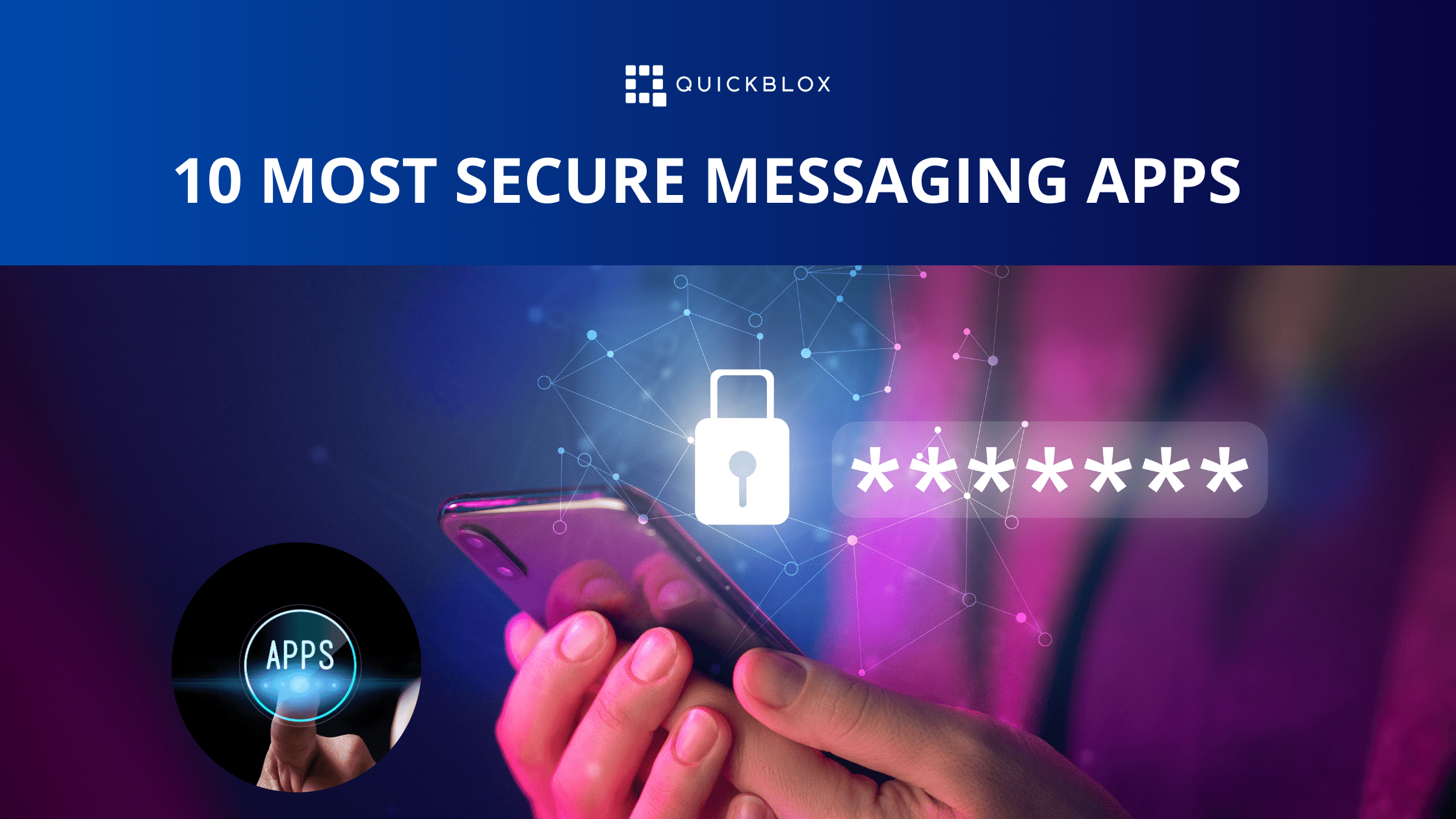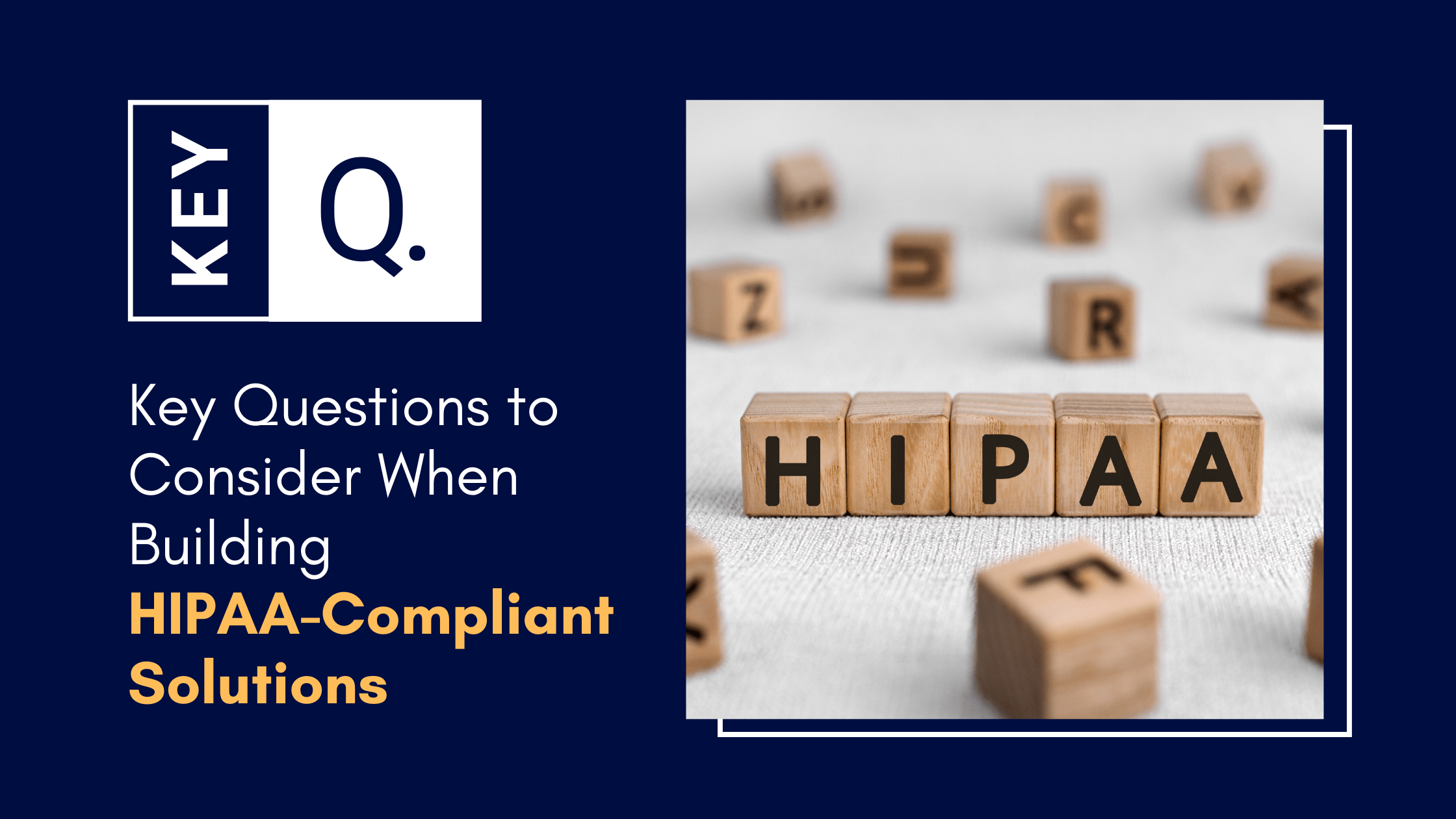
Summary: Looking for the most secure messaging apps? We’ve rounded up 10 of the top options that actually keep your chats private. From open source messaging apps to apps with end-to-end encryption, disappearing messages, and strong privacy controls, this post digs into what makes a secure chat app and a solid secure communication platform. If you care about keeping your messages safe, avoiding prying eyes, and finding the safest chat for your personal or work use, this guide will help you pick the right app.
Table of Contents
Introduction
Messaging apps are no longer just about quick communication—consumers now expect strong security and privacy. They want their calls, chats, images, and videos protected from hackers, companies, and even governments. Choosing the most secure messaging app has become a key consideration for anyone serious about digital privacy.
Yet, as messaging technology has evolved, so have the risks: breaches can occur through hacking, malware, company policies, or local laws that require access to messages or metadata.
For years, popular platforms like Facebook Messenger and Instagram DMs allowed company access to messages—but this is starting to change. As of 2024, Meta is rolling out end-to-end encryption by default for most personal Messenger conversations (with Instagram DMs following as a test), meaning the company can no longer read the contents of these encrypted chats. However, not all features and messages are encrypted for all users.
Snapchat and Twitter/X still do not offer full end-to-end encryption by default: your messages there can generally be accessed by company systems and could be subject to legal requests. And in some countries, governments continue to monitor, demand, or intercept message data.
So—are all apps insecure? Not quite. But knowing which ones truly protect your privacy, and to what extent, is more important than ever. This is where a secure chat app or secure communication platform can make all the difference. Let’s compare the most widely-used platforms.
Features of a Secure Messaging App
A messaging app is more than sending and receiving texts, images, audio messages and audio/video phone calls. A secure chatting app should have the following features:
End-to-End Encryption
End-to-end encryption is a security feature in which only the sender and the receiver of a message have the “key” to read the chat message. The message is scrambled from the sender’s end, and the encrypted message goes to the receiver and gets decrypted there. If anyone breaches the message in transit, they’ll only get unreadable digital gibberish that can’t be decrypted without the key.
Message encryption is not a new thing in the communication world. But it was earlier used primarily for government and military purposes. The documents leaked by whistleblower Edward Snowden created a wave that led to greater public understanding—and demand—for digital privacy in personal communications.
Encryption Settings
While many chat apps offer end-to-end encryption, not all of them use it by default. You may need to go into the app settings of certain messaging apps to activate end-to-end encryption. You shouldn’t assume a particular messaging app is secure right out of the box—always check whether end-to-end encryption is enabled by default on your platform of choice.
Source Code
Many reliable and secure chat apps use open-source code, allowing security and privacy experts to audit the code for any vulnerabilities. Today, open-source code is actually considered a positive indicator of a chat app’s transparency and trustworthiness, especially when combined with independent security audits.
No Metadata Collection
Metadata is your digital fingerprint. It’s not about what you talk about, but who you talk to, the duration of your conversations, and the time of conversations. For example, Instagram and Facebook offer friend or follower suggestions by analyzing metadata, like your contacts or communication patterns. Most privacy-focused messengers aim to minimize metadata collection as much as technically possible, though eliminating it entirely is extremely challenging. Blocking metadata from being recorded on these mainstream platforms is typically impossible, even with VPN use, because the apps themselves collect some metadata necessary for functionality.
Top 10 Secure Messaging Apps
If you know the best features of a secure communication platform, it won’t be difficult for you to know which platforms or solutions offer the most secure messaging app for your needs. We researched the top names and created this detailed view—take a look.
1. Signal
Developed by Open Whisper Systems, Signal has become the epitome of secure messaging apps. This free-for-all messaging app uses an in-house data infrastructure for message transfer. Initially, Signal was known as TextSecure Private Messenger, and it remains true to its original name even today.
What makes Signal the top secure messaging app?
Signal’s got a lot going on, which is probably why privacy folks really like it. Honestly, it’s one of the apps people trust most when they don’t want anyone snooping.
- End-to-End Encryption: Pretty much everything you send—texts, calls, video—gets encrypted. Not even Signal can peek at your stuff. It’s locked tight, which is reassuring.
- Open Source: The code is open, so anyone can take a look. That means it’s not some secret black box—you can actually see what’s going on, and experts can check it for problems. It also gets updates regularly.
- Password Security: You can set a PIN for your account, lock your profile, and even use your phone’s fingerprint or passcode to lock the app. It’s like a little extra “don’t touch my phone” layer.
- Negligible Data Storage: Signal tries really hard not to store anything. You need a phone number to sign up (though usernames are coming soon), but it doesn’t hang on to messages, contacts, or chat logs. You can add profile info if you want, but it’s optional and encrypted. There’s also some techy stuff in the background like “random keys,” but you don’t need to worry about that day-to-day.
- Disappearing Messages: Long before apps like Instagram added “Vanish mode,” Signal had disappearing messages. You can set them to vanish after a while, which is handy if you’re talking about something sensitive.
Security Risks Involved with Signal
Nothing’s perfect. Bugs happen. But Signal’s got a solid reputation. They react quickly when issues pop up, have regular security audits, and overall, it’s considered one of the safer apps for private chatting.
2. Wickr Me
Wicker is the only secure messaging app where you can go anonymous. After installing Wickr on your Android or Apple device, you don’t need a phone number or email address for registration. This means the app collects minimal user information and avoids collecting metadata tied to your identity. Wickr offers end-to-end encryption by default, both for person-to-person and group messages.
On top of that, Wickr also comes with a screen sharing feature, making it an strong collaboration tool. And when it comes to advanced security, Wickr supports PFS (Perfect Forward Security), ensuring even if one session’s keys are compromised, past communications remain secure. It also supports 2FA (Two Factor Authentication).
What makes Wickr a good choice?
Wickr brings along a host of security features.
- End-to-end Encryption: Wickr Pro offers fully encrypted calls and voice messaging right out of the box. This applies to both individual and group communication, and is now standard for all Wickr versions.
- Screenshot Notification: Taking screenshots of a message without the sender’s consent is not a healthy practice. Wickr makes sure the sender knows when the receiver takes a screenshot of the message they’ve sent.
- No Tapjacking: Wickr includes protections against tapjacking attacks (malicious overlays tricking users into unauthorized actions), particularly on Android devices. This guards against certain types of malware delivery.
- Superb Shredder: The files you receive on Wickr can’t be retrieved once you delete them. Not even with special recovery tools. If Wickr shreds a file, it’s gone.
- 3rd Party Keyboards: When using Wickr on iOS, you can block third party keyboards to prevent any kind of keyboard recording.
Security Risks Involved with Wickr
Historically, Wickr’s main security criticism was its closed-source codebase. But in 2017, Wickr released its cryptography code protocol on GitHub, improving transparency.. Still, not all app components are fully open source, so some in the privacy community prefer apps that are completely open for public auditing.
3. Telegram
Telegram has over 700 million users across iOS and Android. It launched back in 2013, and one of its standout features is massive group chats—you can have up to 200,000 people in a single chat. Fun fact: the Russian government once asked Telegram for its encryption keys, and Telegram said no way, which got the app completely banned in Russia. They even offered hackers $300,000 if they could crack their encryption, just to show how confident they are in their security.
Why Use Telegram
Telegram packs in a bunch of features for people who care about privacy and security—but it’s a bit of a mix.
- End-to-End Encryption: This only works in “Secret Chats,” which you have to turn on manually. Normal chats aren’t fully end-to-end; they’re encrypted while traveling to the server, but Telegram could technically see them. Secret Chats are only for one-on-one messages, not groups, and aren’t on by default.
- Passcode Lock: You can lock your app with a 4-digit passcode for a little extra security.
- Two-Step Verification: Adds another layer—basically a passcode plus a text message code when logging in.
- Open Source Client Code: The app you run on your phone is open source, so anyone can check it. But the server code is private, so it’s harder to verify what happens on Telegram’s backend.
- Remote Logout: You can log in on multiple devices at once, but if one gets lost or stolen, you can log it out remotely. Pretty handy.
- Self-Destructing Account: If you stop using Telegram for a while (default six months), your account can delete itself, including all messages and files.
- Extra Features: Telegram also handles big files—up to 2 GB, has encrypted voice/video calls, bots, voice chats, and tools for managing huge groups.
Security Risks Involved with Telegram
There are a few things to watch out for:
- Most chats aren’t end-to-end encrypted by default, so your messages could be seen on Telegram’s servers if needed.
- Server-side code isn’t open, which makes it hard to verify backend security.
- Secret Chats are only for one-on-one messages and have to be turned on manually, so if you forget, you’re not actually fully private.
- Because of its policies and lax moderation, Telegram has attracted some controversial users, including extremist groups.
Find Out More About – Is Telegram Secure? What it takes to build a secure messaging app
4. WhatsApp
WhatsApp is huge. Over 1.5 billion people use it daily. It’s free, no ads, and lets you send messages, photos, videos, and make calls. In some countries, you can even pay through it.
WhatsApp uses the same end-to-end encryption as Signal. That means your chats are scrambled until they reach the other person. But since Meta took over, some metadata—like who you talk to and when—can be shared with other Meta apps. Not ideal if you want full privacy.
It does have a neat feature: it warns you if a chat isn’t encrypted. So at least you know.
Security Stuff You Should Know
- Encryption works by default: All messages, calls, and media get locked from your phone to the other person’s. Business chats? Once delivered, it depends on their own policies.
- Check it yourself: You can verify a chat with a QR code or a long security number.
- Extra login lock: Add a six-digit PIN, just in case someone tries to log in.
- Lost messages disappear: If a message doesn’t send, WhatsApp deletes it after 30 days.
- Backups aren’t safe unless you turn on encryption: Cloud backups are normally unencrypted. You can protect them with a password or a key.
- Notices help: WhatsApp will tell you if someone’s security key changes.
- Control who sees you: Set your profile photo, status, and last-seen visibility.
- Lock the app: Use Face ID or fingerprint. Simple extra layer.
- Device management: See which devices are logged in and kick out the ones you don’t recognize.
What Could Go Wrong
Even with encryption, WhatsApp isn’t perfect.
- Meta sees some info. Metadata like who you talk to and when can go to Facebook/Meta.
- Backups need extra care. Only encrypted ones are safe.
- Flaws pop up sometimes. Hackers might find ways in, but Meta usually patches fast.
- Watch for scams. WhatsApp is popular, so scammers target it constantly.
WhatsApp is a solid choice for secure chatting apps, but it’s not bulletproof. If you tweak settings and stay alert, it can be a fairly safe way to message.
Find Out More About – Why GDPR makes secure messaging apps a business necessity
5. Dust
Dust, which was originally called Cyber Dust, is a private messaging app available on iOS and Android. The whole idea is that your messages—texts, photos, videos—“turn to dust” after they’re read. Usually, they disappear within about 100 seconds. It’s a pretty handy way to keep conversations private without leaving anything behind.
Why use Dust?
Besides the messages disappearing automatically, Dust has a few extra features to keep things secure:
- End-to-End Encryption: Only you and the person you’re messaging can see the content. Not Dust, not the staff—nobody else.
- Message Erasing: Messages don’t stick around on your device or on Dust’s servers. They self-destruct, usually within 24 hours or right after being read. You can even remove a message from the recipient’s phone after sending it.
- Screenshot Detection: On Android, it blocks screenshots completely. On iOS, it can’t stop screenshots, but it will notify you instantly if someone takes one.
- Hidden Sender Identity: In one-to-one chats, the app hides who sent the message, adding a little extra layer of anonymity.
Dust Security Risks
The main thing to know is Dust isn’t open-source. Encryption is solid and designed for privacy, but because the code isn’t public, it’s harder to get independent audits. Open-source alternatives, like Signal, are more transparent in this sense.
6. Threema
Threema is a paid messaging app that’s really focused on privacy. It’s open-source, too, which is a big plus if you care about transparency. Once a message gets delivered, it’s removed from Threema’s servers, making it much harder for anyone to eavesdrop.
Why use Threema?
Here’s why Threema stands out:
- Privacy by Design & Minimal Metadata: The app collects almost nothing. You don’t need a phone number or email to register—just a Threema ID. Messages are end-to-end encrypted and deleted from servers after delivery, leaving very little digital footprint. Contacts and groups are stored only on your device.
- Distribution List: You can send a message to multiple contacts at once without creating a group chat, similar to WhatsApp’s broadcast feature.
- Polls: You can make polls in chats or groups, just like you would on Instagram.
- Anonymous Chats: No personal info is required, so your conversations remain private.
- Light on Data: It doesn’t use much bandwidth, which is great if you’re on a slow connection.
- Contact Verification: A QR code lets you confirm that the person you’re messaging is really who they say they are.
Threema Security Risks
Because Threema is open-source, it undergoes independent security audits regularly. No major vulnerabilities are known, and its compliance with strict Swiss data protection laws adds extra trust.
Find Out More About – What does secure messaging mean?
7. Viber
Viber has carved out a spot among secure chat apps thanks to end-to-end encryption for both one-on-one and group chats. You can use it on mobile or desktop (Windows, MacOS), and file sizes are basically unlimited—send what you want, when you want.
Why People Pick Viber
- Encryption with a color twist: Viber doesn’t just encrypt—it shows you how safe a chat is. Green means contact verified and encrypted, gray means encrypted but not verified, red is a warning: possible risk. You get a quick heads-up on your chat security.
- Two-step login: You can set a six-digit PIN and link a verified email. Extra step, extra protection.
- Self-destruct messages: Want messages gone after being read? Viber can do that for both sides of the chat.
- Hidden number chats: Start a conversation without giving your phone number—handy in public groups or communities.
- No lingering data: Once a message is delivered, Viber doesn’t keep it on their servers. That’s good news for your privacy.
- Privacy controls: Hide chats behind PINs, manage your online status, and control read receipts—little touches that make a difference.
What You Should Know
- Closed source. Viber’s encryption code isn’t open to the public, so there’s no external audit.
- Metadata still exists. Like most apps, it collects some data about usage and devices. But the actual messages? Gone after delivery.
All in all, Viber is solid if you’re looking for a secure message app that’s easy to use and keeps your conversations private—just keep in mind the closed-source setup means you have to trust the company on how they handle encryption.
Find Out More About – Top HIPAA Compliant Chat Apps
8. iMessage from Apple
iMessage is Apple’s proprietary messaging service available on iOS versions 5.0 and later. It is deeply integrated into Apple devices, including iPhone, iPad, Mac, and Apple Watch, making it the default messaging app for many Apple users. iMessage supports sending texts, voice notes, images, videos, documents, and more.
Why use iMessage?
First of all, iMessage is immensely popular among iPhone users because it’s built for Apple devices. But that’s not the only reason (while it is a reason big enough for Apple enthusiasts), for iMessage packs features such as:
- End-to-End encryption: iMessages sent between Apple devices (iPhone to iPhone, iPad, Mac, etc.) are encrypted end-to-end, and are marked blue. The encryption covers texts, images, videos, documents, and other attachments. Messages that are sent as SMS or to non-Apple devices are not encrypted end-to-end. While iMessage may not support voice calls or video calls itself, Apple’s FaceTime, its sister app, provides secure, end-to-end encrypted voice and video calls.
- Self-Destructing Messages: Not many iMessage users know this, but iMessage also comes with the feature to determine for how long a text message, an image or a video will be visible to the receiver. This feature is, however, available only for iOS 10 and later versions.
- iMessage Server: All the messages stay on Apple’s server in encrypted form for 7 days, after which they are deleted permanently.
iMessage Security Concerns
Backing up your iMessage chats on iCloud is a concern because the encryption is not in your control but Apple’s.
9. Facebook/Instagram Messenger
The Messenger app by Facebook can be used for both Facebook and Instagram users. Messenger remains popular globally for its broad feature set and integration across platforms.
Mentionable features of Messenger
- End-to-End Encryption: As of early 2025, Facebook Messenger has fully rolled out end-to-end encryption by default for all personal (one-to-one and group) chats and calls. This means messages, photos, and calls are automatically encrypted from sender to receiver—nobody (including Meta) can access their contents unless explicitly reported by a user. There is no longer a need to enable a “secret conversation” mode for E2EE.
- Disappearing Messages (Vanish Mode): Messenger offers disappearing messages for extra privacy. You can turn on Vanish Mode or set disappearing messages with a timer: messages will be automatically deleted after they are seen or after a selected period (e.g., 24 hours). This feature works for both Facebook and Instagram Messenger.
Messenger Security Risks
Data Collection and Privacy Concerns: Despite gains in encrypted message security, Meta collects substantial metadata and other information (contacts, devices, locations, and usage data) from Messenger users, which can be linked across Facebook, Instagram, and other Meta platforms for advertising and analytics purposes.
10. Silence
A simple, no-frills messaging app, Silence focuses on one thing only, complete security and privacy of your messages. A spin-off of the Signal app, Silence works even when your internet connection doesn’t. Yes, you read that right. Silence encrypts messages sent over traditional cellular networks, allowing you to communicate securely even without mobile data or WiFi. Downsides of Silence are that it doesn’t support video calls, and group chats also have limited support.
What makes Silence useful?
- Offline SMS/MMS Encryption: To be honest, the mere fact that Silence doesn’t need internet connectivity is the best advantage of this quirky messaging app. As much as that if you send an SMS/MMS using Silence, the phone network will only see that you are sending a message, but the contents of the message will be encrypted, only to be decrypted at the receiver’s end.
- Ultra-Secure & Open Source: Silence is open-source and its code is regularly audited by experts so that nobody can hack, crack, or decipher what message you are sending or receiving. Not even government officials.
- Passphrase Protection: Silence lets users set a passphrase to access the app, adding a layer of local app security.
- Simplicity and Privacy: The app has a minimal, distraction-free design and does not collect user data, phone numbers, or create online accounts. All data resides solely on users’ devices, and no message metadata or histories are stored on any servers.
Conclusion
So there you have it, our top 10 list of most secure messaging apps, each doing their best to keep your chats private. But let’s be honest—using someone else’s app always means giving up some control over your data.
With QuickBlox, you can actually make your own secure message app. What’s more, you get to host it wherever you want. No third-party sneaking around. This means:
- Your data stays where you put it.
- Enterprise-level encryption and compliance (HIPAA, GDPR, SOC 2) cover your chats, so it’s good even if you’re in a regulated field.
- Customize features and the interface so it works the way you do.
- You keep full control over privacy.
Bottom line: QuickBlox puts your secure communication platform in your hands. Don’t just rely on someone else’s app. Build one you actually trust—every chat, every file, every call.
Talk to a sales expert
Learn more about our products and get your questions answered.
Contact sales FAQs, what you need to know about Secure Messaging Apps
1. How can I ensure my messaging app is secure?
Honestly, the easiest way is to pick apps that encrypt everything end-to-end. That’s like the bare minimum. Extra stuff like disappearing messages, a PIN, or two-step verification just adds layers. A good secure communication platform also keeps updating and doesn’t store stuff it doesn’t need. Little things matter, like logging out on devices you don’t use anymore.
2. How do open-source messaging apps protect user privacy?
So, open source is cool because anyone can check the code. That means security nerds or even random experts can see if the app actually protects your messages. It’s basically like having a bunch of people constantly looking over the shoulder of your secure chatting apps. Transparency makes it harder for sneaky stuff to happen.
3. Which is the best secret messaging app?
Depends on what you want. Look for apps with disappearing messages, hidden senders, and strong encryption. One-to-one chats or groups, whichever you use, as long as it keeps your info private. The “best secure message app” is usually just the one you trust enough to actually use, you know?
4. How do I know if a chat app is safe to use?
Check if it’s really encrypting messages end-to-end, doesn’t log your messages, and has a decent reputation. Look for independent security audits if you can.
5. What features make a secure message app trustworthy?
Stuff like encryption, disappearing messages, maybe open-source code, and extra login security. Things like PINs, two-step verification—little details make a difference. This is what separates normal apps from legit secure chat applications.
6. Which is the safest messaging app?
Apps that don’t hoard your data, let you verify contacts, and encrypt everything. Also ones that update often and actually give you control over your privacy. The safest chat apps aren’t perfect, but they give you more peace of mind than random messaging apps.








